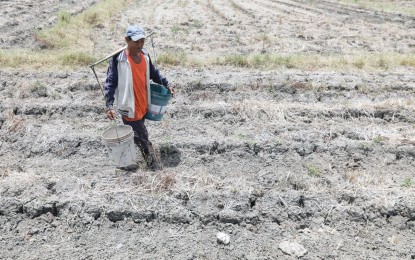[7.10] 엘니뇨 속에서 농업 부문을 돕기 위해 재생 에너지 활용 - solon
컨텐츠 정보
- 24,653 조회
본문
MANILA – 월요일에 정당 명부 의원은 농업 부문에 대한 엘니뇨 현상의 잠재적 영향을 완화하기 위해 재생 가능 에너지 사용을 제안했습니다.
Ako Bicol Party-list Rep. "Elizaldy Co"는 재생 가능 에너지의 힘을 활용하면 효율적인 물 사용을 보장하고 작물 생산성을 향상시킬 수 있다고 말했습니다.
"PAGASA(Philippine Atmospheric, Geophysical and Astronomical Services Administration)의 예측을 고려할 때 엘니뇨가 우리 농업 지역 사회에 미칠 잠재적인 악영향을 해결하기 위한 사전 조치를 취하는 것이 중요합니다."라고 "Co"가 말했습니다.
그는 특히 지속 가능하고 신뢰할 수 있는 수원이 필요한 지역의 물 수요를 성공적으로 해결한 것으로 입증된 태양열 급수 시스템을 활용할 것을 권장했습니다.
"Co"는 태양열 급수 시스템이 특히 빈곤하고 멀리 떨어진 고지대 지역 사회에서 깨끗한 물에 대한 안정적인 접근을 확인하는 데 도움이 될 수 있다고 말했습니다.
그는 Bicol 지역에서 태양열 관개 및 비료 시스템을 구현하기 위해 전문가들과 협력하여 혁신적인 접근 방식을 추구하고 있다고 말했습니다.
그는 이를 통해 Bicol 농부들에게 물 부족의 영향을 완화하고 농업 관행을 최적화할 수 있는 지속 가능한 솔루션을 제공할 것이라고 말했습니다.
"제안된 태양열 관개 시설은 진보된 비료 시스템과 결합되어 우리 농부들에게 중단 없는 환경 친화적인 물 공급을 보장하는 데 큰 가능성을 가지고 있습니다."라고 "Co."가 말했습니다.
그는 이것이 농부들에게 엘니뇨로 인한 문제를 극복하고 농업 생산량을 극대화할 수 있는 지속 가능하고 효율적인 방법을 제공할 수 있다고 말했습니다.
"책임 있는 물 관리 관행을 촉진하고, 혁신적인 기술을 채택하고, 지역사회에 힘을 실어줌으로써 우리는 회복력을 강화하고 농부와 그들의 생계에 대한 엘니뇨의 영향을 최소화할 수 있습니다."라고 그는 말했습니다.
PAGASA는 2024년 1분기까지 지속될 가능성이 있는 엘니뇨의 영향을 아직 완전히 느끼지 못했다고 말했습니다.
대통령 "페르디난드 R. 마르코스 주니어" 는 정부 기관에 엘니뇨의 가능한 영향에 대비하고 "프로토콜 기반 및 과학적" 장기 솔루션을 보장하며 물과 에너지 보존에 대한 대중의 인식을 제고하기 위한 캠페인을 마련하도록 명령했습니다.
우선, 농무부는 가뭄으로 인해 부정적인 영향을 받을 수 있는 지역을 파악하고 있으며, 사회복지개발부는 지방 정부 단위에서 보충할 수 있는 식품 및 비식품 품목을 비축했다고 밝혔습니다.
한편, 국립 관개국(National Irrigation Administration) 행정관 대행인 "Eduardo Guillen"은 관개 사용을 약 30% 줄이는 것으로 보이는 대체 습윤 및 건조 시스템을 구현하고 있다고 말했습니다. (PNA)
This is the Original Article from PNA NEWS
[7.10] Tap renewable energy to help agri sector amid El Niño - solon
MANILA – A party-list lawmaker on Monday proposed the use of renewable energy to mitigate the potential effects of the El Niño phenomenon on the agriculture sector.
Ako Bicol Party-list Rep. "Elizaldy Co" said harnessing the power of renewable energy would ensure efficient water usage and enhance crop productivity.
"Given the predictions from PAGASA ( Philippine Atmospheric, Geophysical and Astronomical Services Administration), it is crucial that we take proactive measures to address the potential adverse effects of El Niño on our agricultural communities," "Co" said.
He particularly recommended utilizing solar-powered water supply systems, which have been proven successful in addressing the water needs of areas that required a sustainable and dependable source.
"Co" said solar-powered water supply systems could help ascertain reliable access to clean water, especially in impoverished, far-flung and upland communities.
He said he was pursuing an innovative approach by collaborating with experts to implement solar-powered irrigation and fertigation systems in the Bicol Region.
He said through this, Bicol farmers would be provided with sustainable solutions to mitigate the impact of water scarcity and optimize agricultural practices.
"The proposed solar-powered irrigation facility, coupled with an advanced fertigation system, holds great promise in ensuring an uninterrupted and environmentally friendly water supply for our farmers," said "Co."
He said this could empower farmers with sustainable and efficient methods to overcome the challenges posed by El Niño and maximize their agricultural output.
"By promoting responsible water management practices, adopting innovative technologies, and empowering communities, we can enhance our resilience and minimize the impact of El Niño on our farmers and their livelihoods,” he said.
PAGASA said the country has yet to feel the full effects of El Niño, which is likely to persist until the first quarter of 2024.
President "Ferdinand R. Marcos Jr." has ordered government agencies to prepare for the possible impact of El Niño, ensure “protocol-based and scientific” long-term solutions and come up with a campaign to generate public awareness of water and energy conservation.
For one, the Department of Agriculture is mapping out the areas that could be negatively affected by the dry spell while the Department of Social Welfare and Development said it has stockpiled food and non-food items, ready to be augmented by local government units.
National Irrigation Administration acting administrator "Eduardo Guillen," meanwhile, said they are implementing the alternate wetting and drying system, which is seen to reduce irrigation use by about 30 percent. (PNA)
관련자료
-
이전
-
다음


